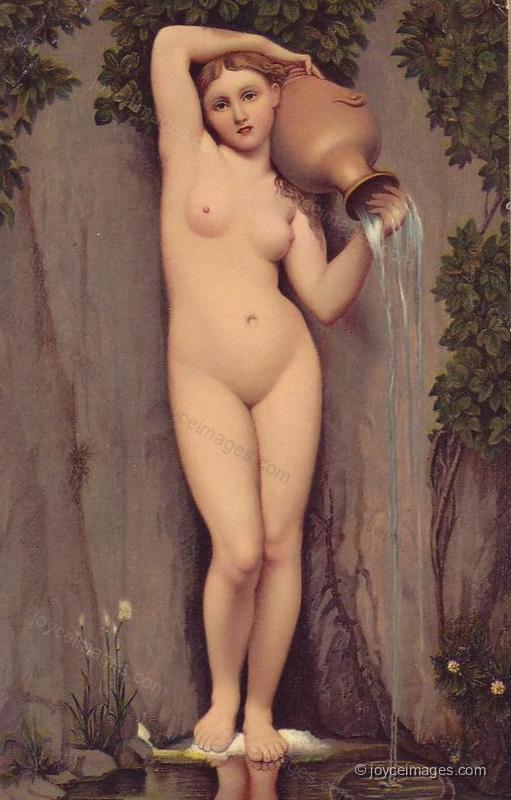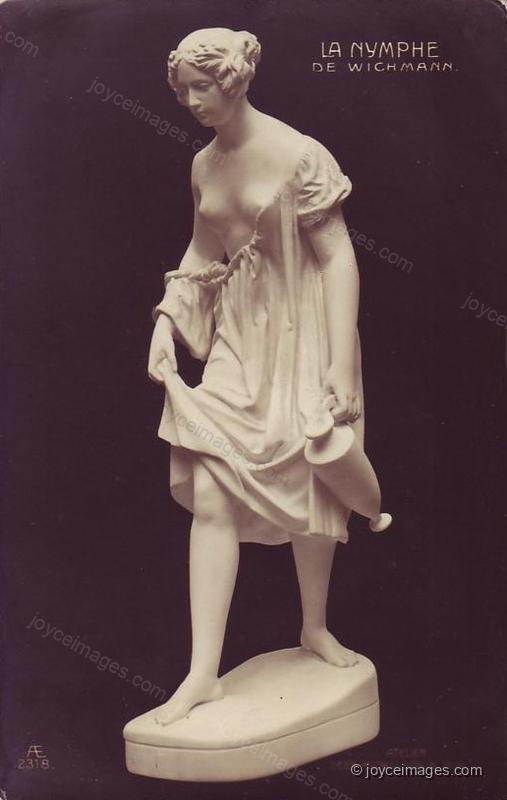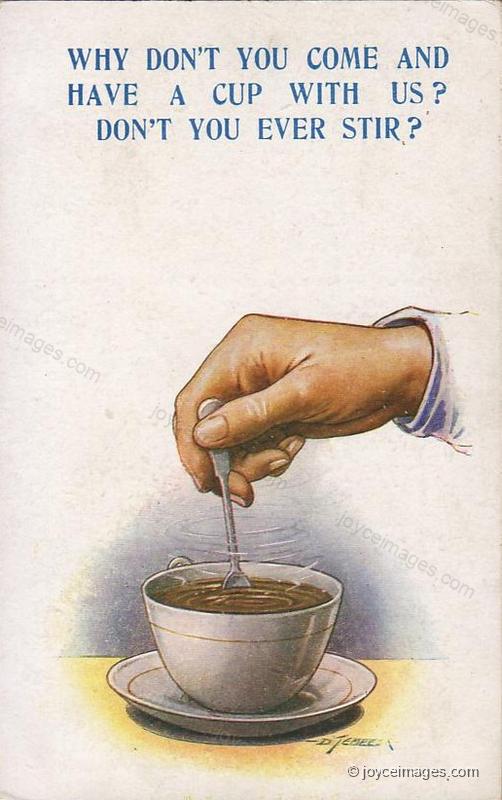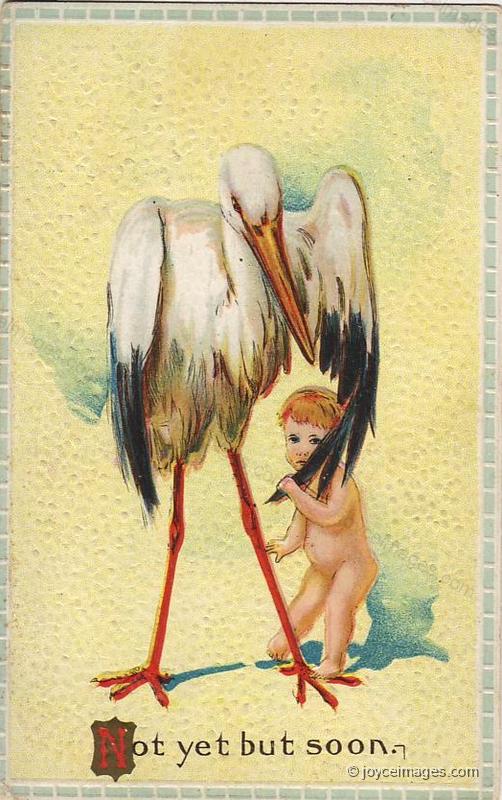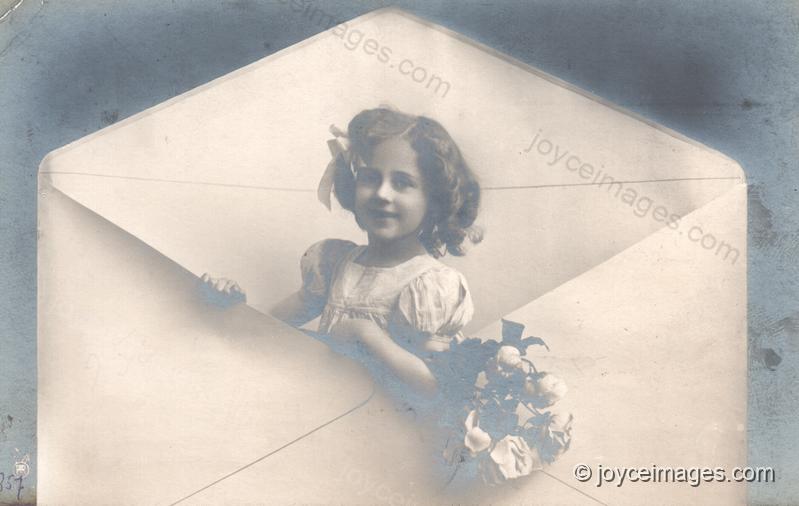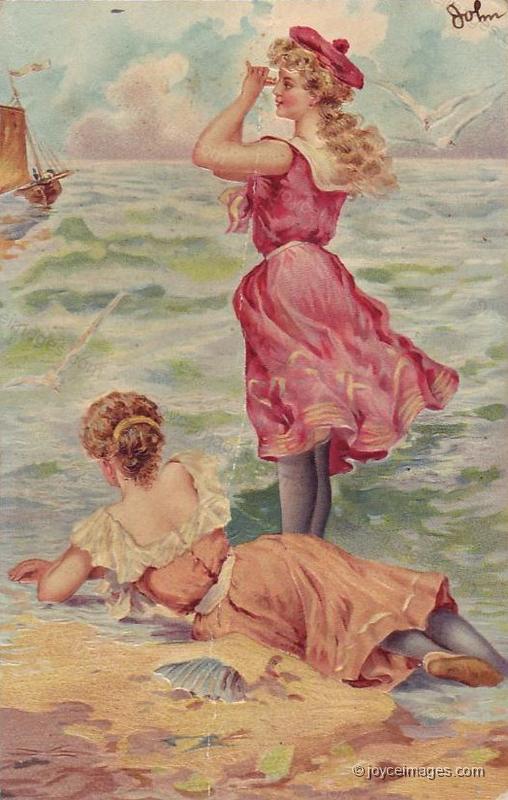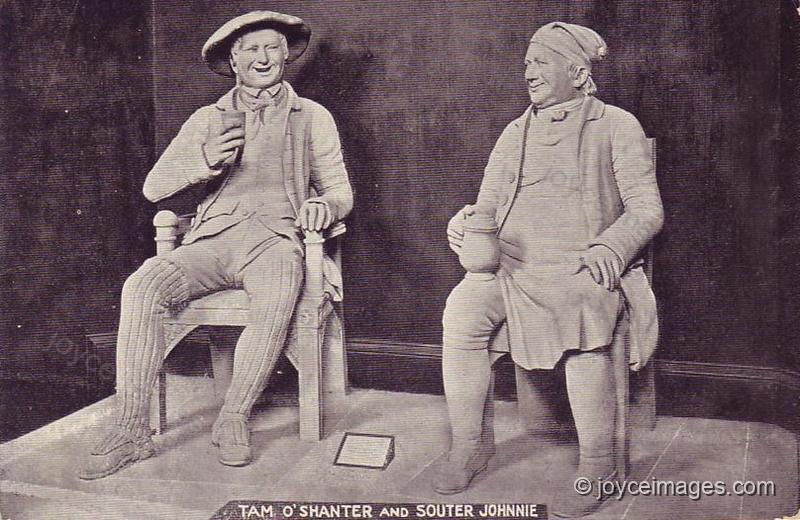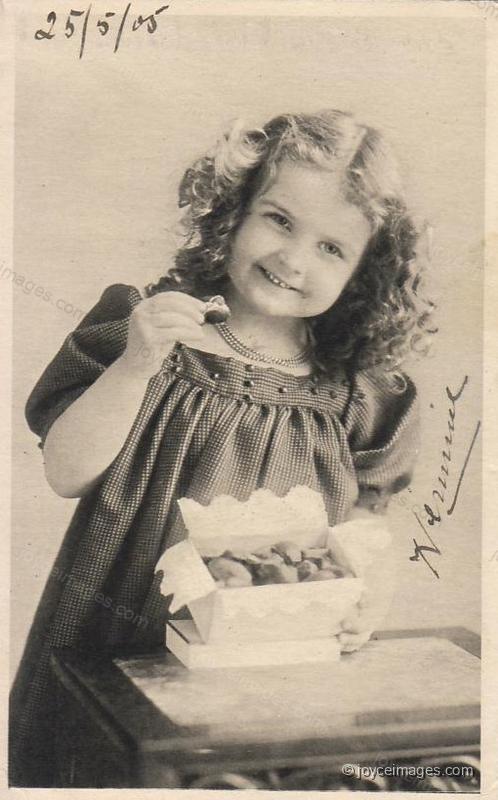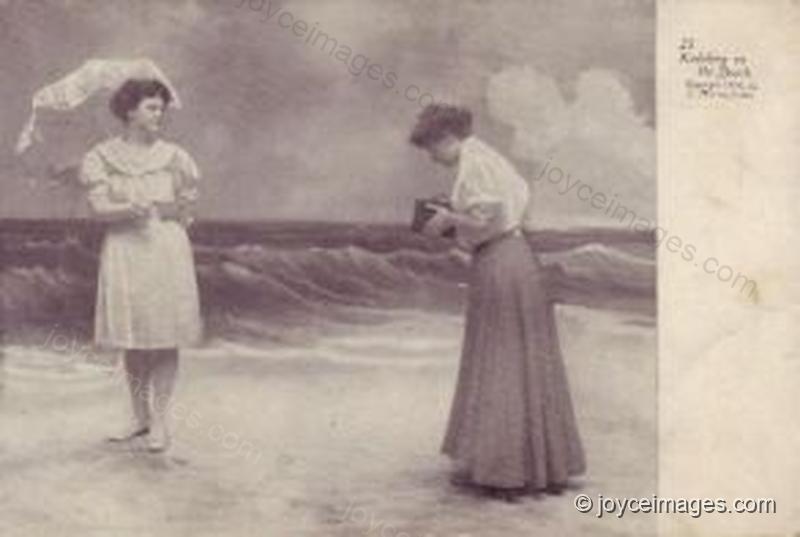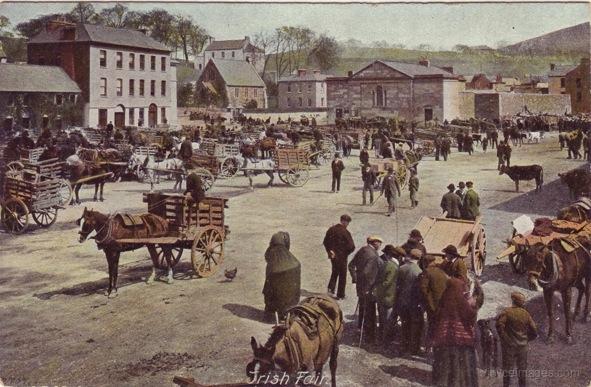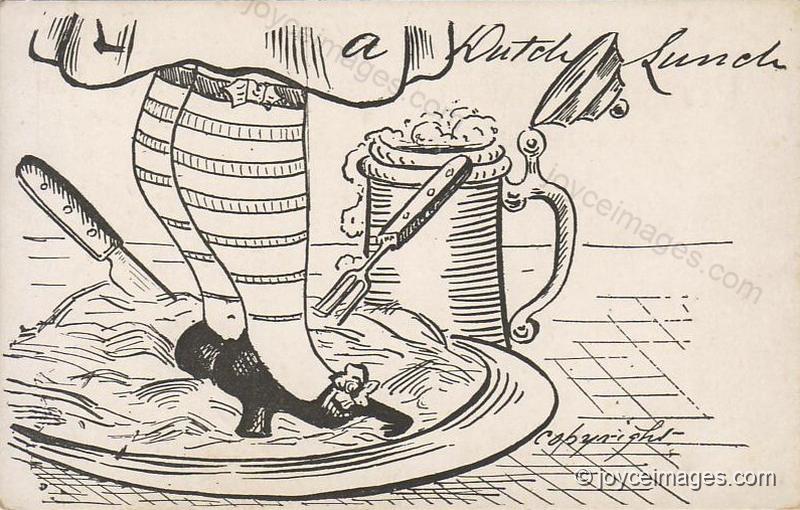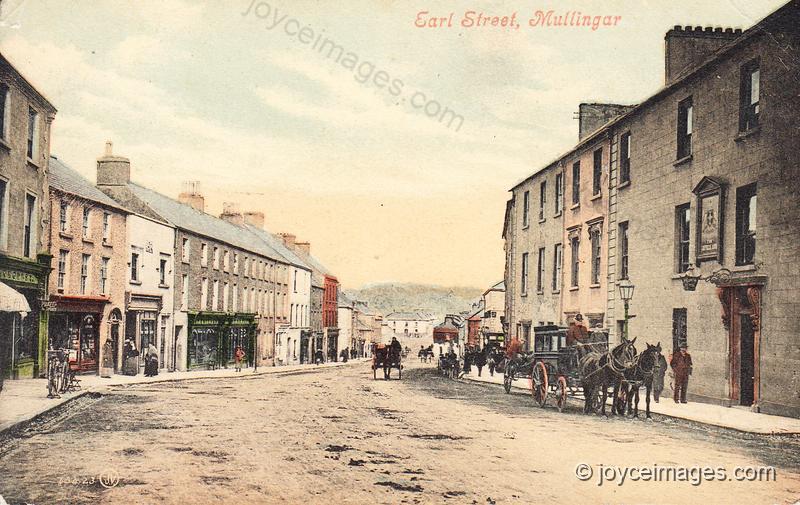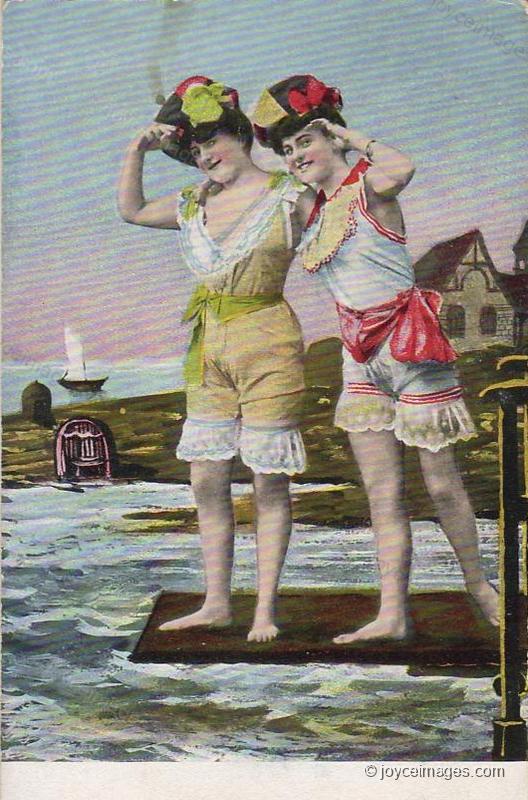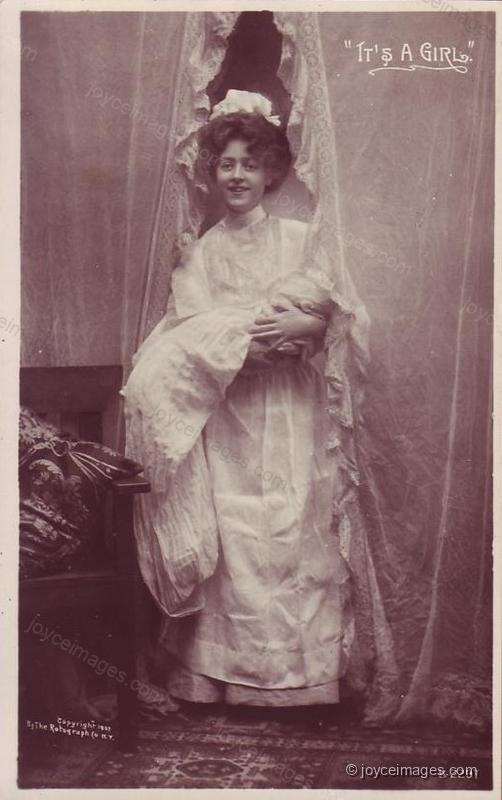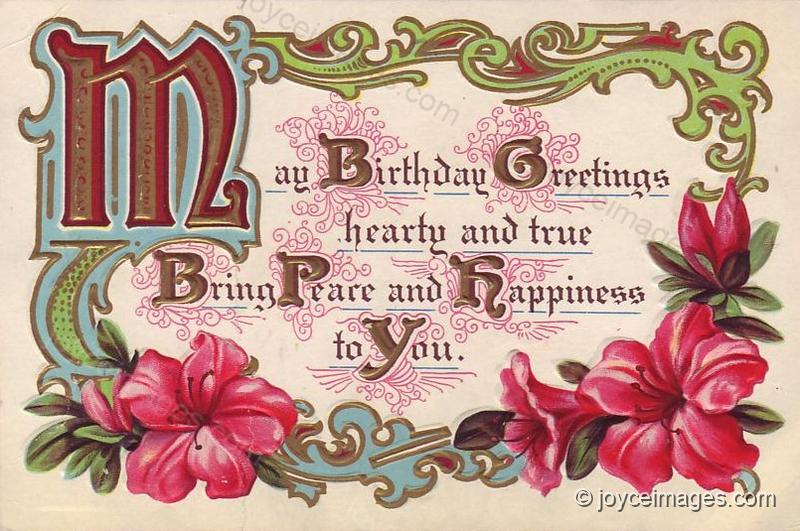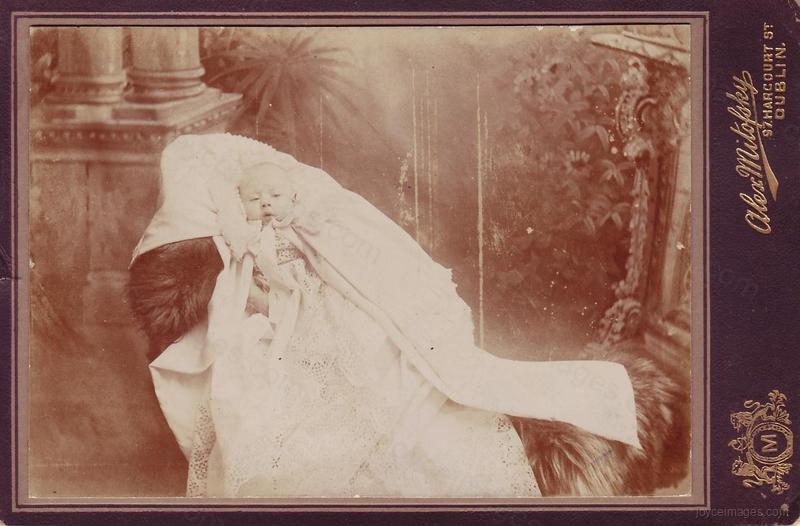"The Bath of the Nymph over the bed. Given away with the Easter number of Photo Bits: splendid masterpiece in art colours. Tea before you put milk in. Not unlike her with her hair down: slimmer. Three and six I gave for the frame. She said it would look nice over the bed. Naked nymphs: Greece: and for instance all the people that lived then." (U4.369)
[Note: 'The Bath of the Nymph' from Photo Bits has not yet been identified. This is 'La Source' (1856), a painting by the French artist J.A.D. Ingres, now in the Musée d'Orsay in Paris.]
[Note: 'The Bath of the Nymph' from Photo Bits has not yet been identified. This is 'La Source' (1856), a painting by the French artist J.A.D. Ingres, now in the Musée d'Orsay in Paris.]
"He turned the pages back.
- Metempsychosis, he said, is what the ancient Greeks called it. They used to believe you could be changed into an animal or a tree, for instance. What they called nymphs, for example." (U4.374)
- Metempsychosis, he said, is what the ancient Greeks called it. They used to believe you could be changed into an animal or a tree, for instance. What they called nymphs, for example." (U4.374)
"Her spoon ceased to stir up the sugar. She gazed straight before her, inhaling through her arched nostrils.
- There's a smell of burn, she said. Did you leave anything on the fire?
- The kidney! he cried suddenly.
He fitted the book roughly into his inner pocket and, stubbing his toes against the broken commode, hurried out towards the smell," (U4.378)
- There's a smell of burn, she said. Did you leave anything on the fire?
- The kidney! he cried suddenly.
He fitted the book roughly into his inner pocket and, stubbing his toes against the broken commode, hurried out towards the smell," (U4.378)
"stepping hastily down the stairs with a flurried stork's legs. Pungent smoke shot up in an angry jet from a side of the pan. By prodding a prong of the fork under the kidney he detached it and turned it turtle on its back. Only a little burnt. He tossed it off the pan on to a plate and let the scanty brown gravy trickle over it.
Cup of tea now. He sat down, cut and buttered a slice of the loaf. He shore away the burnt flesh and flung it to the cat. Then he put a forkful into his mouth, chewing with discernment the toothsome pliant meat. Done to a turn. A mouthful of tea. Then he cut away dies of bread, sopped one in the gravy and put it in his mouth. What was that about some young student and a picnic?" (U4.383)
Cup of tea now. He sat down, cut and buttered a slice of the loaf. He shore away the burnt flesh and flung it to the cat. Then he put a forkful into his mouth, chewing with discernment the toothsome pliant meat. Done to a turn. A mouthful of tea. Then he cut away dies of bread, sopped one in the gravy and put it in his mouth. What was that about some young student and a picnic?" (U4.383)
"He creased out the letter at his side, reading it slowly as he chewed, sopping another die of bread in the gravy and raising it to his mouth." (U4.394)
"Dearest Papli,
Thanks ever so much for the lovely birthday present. It suits me splendid. Everyone says I'm quite the belle in my new tam." (U4.397)
Thanks ever so much for the lovely birthday present. It suits me splendid. Everyone says I'm quite the belle in my new tam." (U4.397)
Tam, abbreviation for Tam o' Shanter, is a Scottish style hat named after a character in a Robert Burns poem from 1790. Originally worn by men, the Tam o' Shanter was adopted by women as a 'Tam' or a 'Tammy.' It is a floppy type of hat usually made of wool, and has a toorie (pom-pom) in the centre. It was originally available only in blue, then later in tartan and various colours. Tam o' Shanters are a casual alternative to the Balmoral and the Glengarry in Highland dress, and are part of the uniforms of a number of military units.
"I am getting on swimming in the photo business now. Mr Coghlan took one of me and Mrs. Will send when developed." (U4.400)
"and all the beef to the heels were in." (U4.402)
from the expression 'Beef to the heels like a Mullingar heifer' = thick-ankled.
from the expression 'Beef to the heels like a Mullingar heifer' = thick-ankled.
"We are going to lough Owel on Monday with a few friends to make a scrap picnic. Give my love to mummy and to yourself a big kiss and thanks. I hear them at the piano downstairs. There is to be a concert in the Greville Arms on Saturday." (U4.403)
"There is a young student comes here some evenings named Bannon his cousins or something are big swells and he sings Boylan's (I was on the pop of writing Blazes Boylan's) song about those seaside girls. Tell him silly Milly sends my best respects. I must now close with fondest love
Your fond daughter Milly
P.S. Excuse bad writing am in hurry. Byby. M." (U4.406)
Those Lovely Seaside Girls is a Victorian music hall song (1899), with lyrics and music by Harris B. Norris.
Your fond daughter Milly
P.S. Excuse bad writing am in hurry. Byby. M." (U4.406)
Those Lovely Seaside Girls is a Victorian music hall song (1899), with lyrics and music by Harris B. Norris.
"Remember the summer morning she was born, running to knock up Mrs Thornton in Denzille street. Jolly old woman. Lots of babies she must have helped into the world." (U4.415)
"Fifteen yesterday. Curious, fifteenth of the month too. Her first birthday away from home. Separation." (U4.415)
